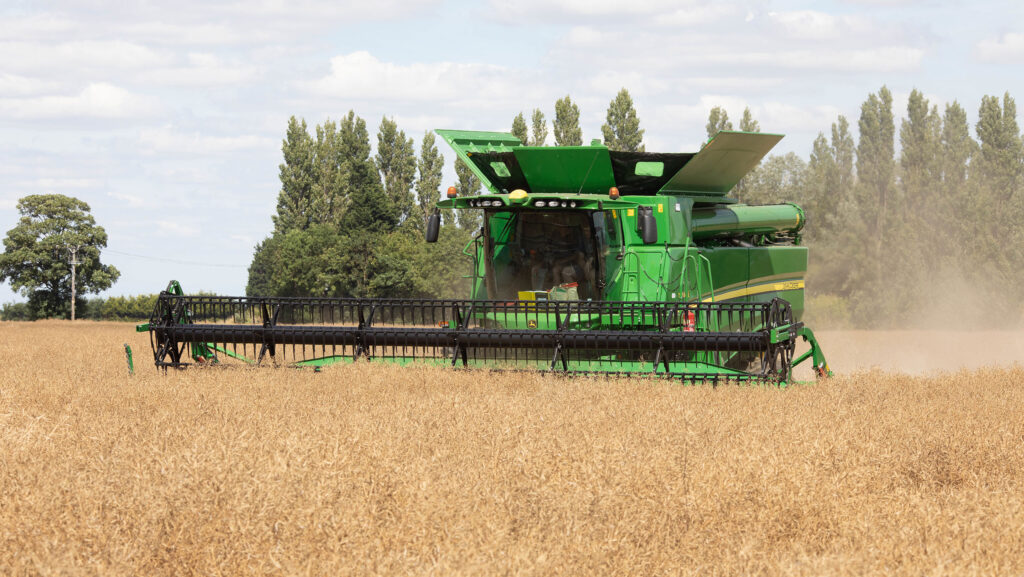Frontier launches new OSR contract to reduce risk for growers
 Oilseed rape harvest © Tim Scrivener
Oilseed rape harvest © Tim Scrivener Merchant Frontier Agriculture has announced a new scheme designed to reduce the financial burden and risk on farm businesses from growing oilseed rape.
Rapeseed crops have struggled in the UK in recent years with poor establishment and pest damage deterring some growers from planting it and leading to overall production declines.
However, Frontier has launched a new initiative which will mean growers who meet specific contract requirements, will only have to pay for the seed on the area that is actually established in the autumn, rather than the total planted area.
See also: Oilseeds trading at £376/t with EU rapeseed crop set to shrink
It also plans to allow growers to defer payments for seed until the following year.
Frontier seed director Sam Brooke said: “Oilseed rape remains a profitable break crop for UK growers, but its success is heavily dependent on good establishment.
“This has become increasingly challenging in recent seasons given the impact of difficult weather and continued threats such as cabbage stem flea beetle.
“The resilience of farm businesses is critical for continuity of supply, but when shouldering much of the risk associated with growing the crop it can be difficult for some farmers to justify it in the rotation – it needs to be commercially sustainable.”
Eligibility
Varieties which will be eligible under the scheme include LG Adeline, Murray, LG Wagner, Matrix CL, and Crocodile.
Growers who use Frontier’s agronomy service will be eligible. However, as part of the contract they will also be required to grow a companion crop alongside oilseed rape.
Jim Knightbraid, seed business development manager at Frontier, said: “With the deferred payment, growers will benefit from an upfront cost saving of approximately £90/ha on any of the seed, plus £33/ha on the accompanying companion crop.
“Additionally, a payment of £55/ha is available for companion cropping under the IPM3 action of the Sustainable Farming Incentive. This funding provides an additional buffer against the cost of establishing oilseed rape.”
